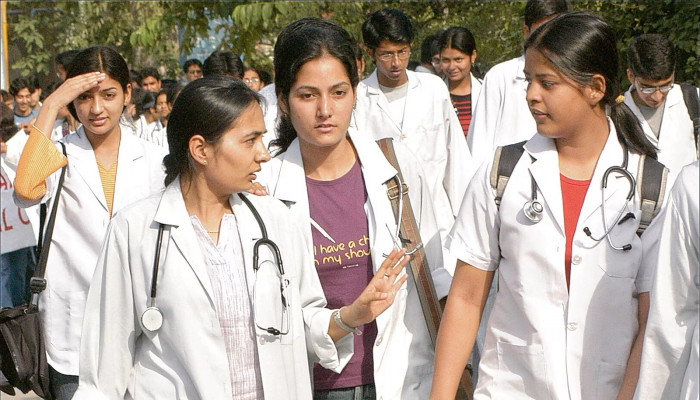New NMC regulations prohibit doctors from accepting gifts and travel benefits from pharmaceutical companies
- In Reports
- 06:10 PM, Aug 12, 2023
- Myind Staff
In a noteworthy development, the National Medical Commission (NMC) has introduced new regulations that place restrictions on doctors and their families in relation to receiving gifts, travel amenities, hospitality, cash, or recreational privileges from pharmaceutical companies, their representatives, commercial healthcare establishments, and medical device firms. The regulations firmly state that such practices are prohibited under all circumstances.
On August 2, the "Regulations relating to Professional Conduct of Registered Medical Practitioners" were issued, implementing comprehensive guidelines for medical professionals. The regulations, issued by the National Medical Commission (NMC), encompass various aspects of medical practice.
The regulations prohibit doctors from endorsing drug brands, medicines, or equipment and outline swift protocols for patient record management. For hospital-based patient records overseen by a registered medical practitioner (RMP), responses to record requests must be within five days, down from 72 days. In emergencies, rapid access to records is emphasized.
The regulations encourage digitalization of patient records within three years, aligned with IT Act, data protection, and privacy laws. Self-employed medical practitioners must maintain inpatient records for three years post-treatment, using a standard format.
Professional development is highlighted, mandating registered medical practitioners to accrue 30 credit hours annually or 150 hours every five years through accredited sources. The process involves recognized medical colleges, institutions, or societies, with credits tracked digitally on the EMRB-NMC website as per NMC regulations.
According to the regulations, "RMPs and their families must not receive any gifts, travel facilities, hospitality, cash or monetary grants, consultancy fee or honorariums, or access to entertainment or recreation from pharmaceutical companies or their representatives, commercial healthcare establishments, medical device companies, or corporate hospitals under any pretext."
The regulations exclude salaries and benefits received by registered medical practitioners as employees of organizations. Additionally, doctors are prohibited from participating in third-party educational activities, such as CPD, seminars, workshops, etc., if sponsored directly or indirectly by pharmaceutical companies or the allied health sector.
"RMP individually or as part of an organization/association shall not give to any person or to any companies or to any products or to software/platforms, whether for compensation or otherwise, any approval, recommendation, endorsement... concerning any drug brand, medicine, nostrum remedy, surgical, or therapeutic article, apparatus or appliance or any commercial product or article with respect of any property, quality or use thereof or any test, demonstration or trial thereof, for use in connection with his name, signature, or photograph in any form or manner of advertising through any mode nor shall he boast of cases, operations, cures or remedies..." the regulations said
"In case of abusive, unruly, and violent patients or relatives, the registered medical practitioner can document and report the behavior and refuse to treat the patient. Such patients should be referred for further treatment elsewhere," the regulations said.
The NMC highlighted that the use of alcohol or intoxicants, on or off duty, which could impact professional performance, will be deemed as misconduct.
Notably, the term "emergency" has been formally defined as a 'life and limb-saving procedure' for the first time, offering clarity where it was previously lacking.
Registered medical practitioners are required to display only NMC-recognized degrees/diplomas as suffixes to their names, as listed on the NMC website. This rule extends to medical professionals qualified abroad, who must use NMC-approved equivalent prefixes and suffixes after passing FMGE/NEXT exams, ensuring clarity for patients and the public.
Image source: HindustanNewsHub







Comments